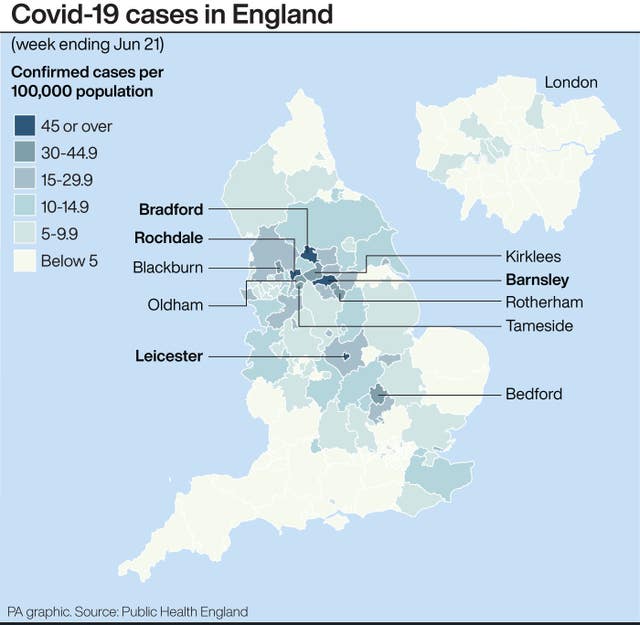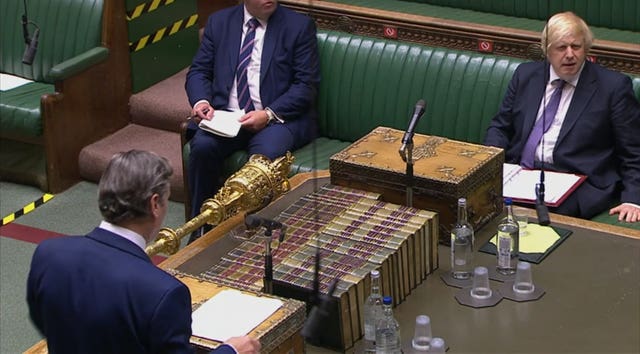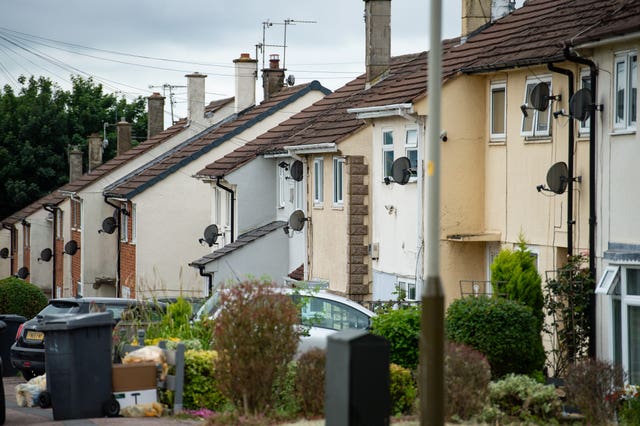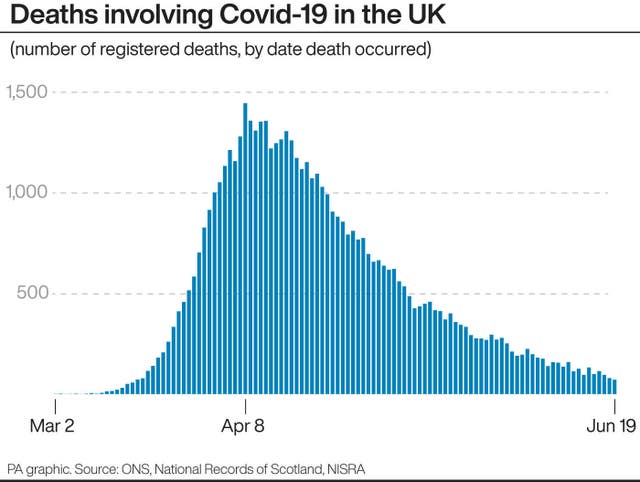Johnson under pressure over response to local coronavirus flare-ups
Prime Minister Boris Johnson insisted his ‘whack-a-mole’ strategy had been successful in other areas after Leicester was ordered to lock down.

Boris Johnson has been accused of being slow to respond to the coronavirus outbreak in Leicester, resulting in the city being forced into a local lockdown.
Labour leader Sir Keir Starmer accused the Prime Minister of presiding over a “lost week” when action could have been taken in the first real test of Mr Johnson’s “whack-a-mole” strategy for tackling coronavirus clusters.
The Prime Minister insisted that action had been taken swiftly and defended the sharing of testing figures with local leaders.

The clash came amid criticism of the way Public Health England (PHE) and Mr Johnson’s Government are handling data on coronavirus cases, with accusations of long delays in sharing figures with regional public health experts.
A PHE regional map for testing across England shows the towns and cities suffering high numbers of cases.
The data covers all mass testing in England, including that carried out in NHS and PHE labs – known as pillar one – plus all community testing, drive-throughs and tests sent to people’s homes, known as pillar two.
The map shows that the worst affected regions (with at least 45 cases per 100,000 people in the week to June 21) are Leicester – which went into further lockdown on Tuesday – Barnsley, Bradford and Rochdale.
There are six areas in the next worst affected category (30-44.9 cases per 100,000), which are Bedford, Blackburn with Darwen, Tameside, Oldham, Kirklees and Rotherham.
The top 10 are:
Leicester (with 140.2 cases per 100,000 population)
Bradford (69.4)
Barnsley (54.7)
Rochdale (53.6)
Bedford (42)
Oldham (38.6)
Rotherham (33.6)
Tameside (33.3)
Blackburn with Darwen (32.9)
Kirklees (30.3)

At Prime Minister’s Questions, Sir Keir said Health Secretary Matt Hancock had publicly acknowledged an outbreak in Leicester on June 18 but that the lockdown was not announced until Monday, 11 days later.
Mr Johnson said action in Leicester had actually been taken from June 8 as “we could see that there was an issue there” and mobile testing units were deployed.
Sir Keir said that the local authority in Leicester had data for pillar one tests but not pillar two, which meant it believed there were “80 positive tests in the last fortnight, when the real figure was 944”.
It was only last Thursday that the full information was provided, Sir Keir said.
“There was a lost week while the virus was spreading,” he added.
The Labour leader warned that “there are now real fears of further local lockdowns across the country” and demanded a “cast-iron guarantee” that no other authority would be put in the same position as Leicester.
Mr Johnson insisted that “both pillar one and pillar two data have been shared not just with Leicester but with all authorities across the country”.
“We did in Leicester exactly what we did in Kirklees or in Bradford or in Weston-super-Mare or other places where very effective whack-a-mole strategies have been put in place.”
But there were “particular problems” in Leicester in implementing the advice and “getting people to understand what was necessary to do”.
Downing Street said action taken to tackle those problems included making sure that the advice was provided in “all of the languages which might be spoken locally” and ensuring workplaces were following the Covid-secure guidance.
Sir Keir also questioned the operation of NHS Test and Trace, claiming that of the estimated 22,000 new Covid infections per week in mid-June, just 5,000 were reached by the system.
Mr Johnson replied that the system was reaching “huge numbers of people”.
Meanwhile, a leading scientist warned that it is an “illusion” that the UK is past the worst of the Covid-19 epidemic.

Professor Neil Ferguson, from Imperial College London – who quit as a Government adviser after admitting breaking lockdown rules – said the UK should be braced for regional flare-ups.
He told BBC Radio 4’s Today programme: “It’s inevitable we will (have further local outbreaks), we are relaxing lockdown rules and that means that contacts in the population are going up and that’s a very variable process.”
Prof Ferguson said there is a window of a few weeks to resolve “teething problems” in how data is shared, to have systems up and running for the scheduled full return of schools in September in England.
It comes after the British Medical Association (BMA) said the Government needs to be “more open and transparent with local Covid-19 data” and on how spikes will be dealt with.
Mayor of Greater Manchester Andy Burnham said the new PHE data raised questions for the Government.
He said: “The biggest of all is this: Why did they give the go-ahead for the big reopening on July 4 when they could clearly see what was happening in Leicester?”

Labour MP Yvette Cooper said health authorities in her constituency in Wakefield, West Yorkshire, had been trying to get hold of pillar two testing data but had not been able to.
She said it was “appalling and incomprehensible” that basic information had not been provided.
In other developments:
– Turkey’s ambassador to the UK said he is expecting the nations to form an air corridor exempting travellers from quarantines;
– The Trump administration has bought virtually all stocks for the next three months of the drug remdesivir – shown to work against Covid-19;
– The Government is to establish a new “office for talent” in an effort to boost the economy by attracting leading scientists and researchers to the UK after the Covid-19 crisis;
– Researchers have said frailty is as important as age or underlying health issues in determining the risk of people dying from coronavirus.





